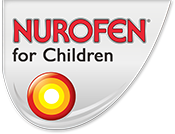The Truth about Headaches

What is a headache?
The vast majority of us have suffered some sort of headache at some point in our lives. We notice (and even anticipate them) when we get less sleep, or stare at computer screens all day or even have too much work to finish. But how many of us really know what a headache is, what causes it and which type of headache we are suffering from?
‘Headache’ is a generic term for what are, in fact, several distinct different types of pains in the head. Most headaches that we experience (that is, not caused by an underlying illness) fall into one of the three primary types: Tension type headaches, migraines, and cluster headaches.
Tension type headaches can feel like an aching, tight pressure or pressing pain in your head. This can occur around the whole head, on the sides, or at the back of your head and neck. The pain may feel like a tight band around your head, and your neck muscles may also feel taut and painful.

Migraines are less common than tension type headaches, and they are often a lot more severe. They’re characterized as a throbbing pain at the front or the sides of the head. Migraines can also come with a number of other unpleasant symptoms, such as painful sensitivity to light and sound, nausea, dizziness and vomiting.

Cluster headaches are a rare form of headache that is experienced in ‘clusters’ of a few weeks or months at a time. These are extremely painful, usually occurring in the area around and behind one eye, causing intense pain, as well as a blocked/runny nose, and red, watering eyes.

What causes a headache?
There are certain triggers associated with all types of headaches, such as stress, tiredness, and particular foods and drinks. You might get a sharp pain in the head even after having a chilled soda or eating an ice cube. However, different types have different causes, and can be a result of different factors.
Migraines are thought to be caused by temporary changes in the chemicals and blood vessels in the brain, but they can be very hard to predict, both in terms of frequency, and as to who is susceptible. Most people can have several triggers that give them migraines. Similarly, scientists are still discovering information about cluster headaches,whichare thought to be caused by a widening of the blood vessels in the brain – this takes place in the hypothalamus of the brain, releasing certain chemicals. Interestingly, eight out of ten sufferers of cluster headaches are male, and almost all are smokers.
A lot more is known about tension type headaches, which are associated with the muscles around the head, neck and face. When these muscles are strained, substances called prostaglandins are released at the site of the muscle strain that stimulate pain receptors, causing you to feel the headache. So when this happens, it serves as a warning that your body is being damaged in some way. The pain alerts us to act quickly to prevent further damage. Several triggers are believed to be the causes of tension type headaches. These include: stress, anxiety and poor posture, so a headache could even be caused by sitting in an uncomfortable position. Bright sunlight, loud noises, dehydration and squinting may be also be triggers of a tension type headache.
What can you do?
There are several measures you can take to relieve your headache. They include relaxation techniques, improving your posture and avoiding triggers that may cause your headache. If you believe you are suffering from migraines or cluster headaches, then seek advice from a medical professional, but if you think you might be suffering from a tension type headache, you may also wish to consider using a painkiller.
Since prostaglandins can be released as a result of muscle strain in tension type headaches and contribute to pain generation, inhibiting their production is important. Nurofen is an over the counter pain killer that contains ibuprofen as its primary active ingredient. Ibuprofen has been scientifically established to act by inhibiting the formation of prostaglandins in muscles, like those around your head and neck. Resultantly, it eliminates the headache.
But if you feel that your headache is the result of another underlying cause, do seek professional help from doctors and/or pharmacists. If the headache has come on following a head injury, or has become increasingly severe or you're experiencing visual problems, fever, nausea or slurred speech, contact your doctor straight away.
The information presented above is not meant to diagnose illness or prescribe a cure. Please contact your doctor for all health matters. Nurofen contains ibuprofen for pain relief. Always read the label before taking medication.
